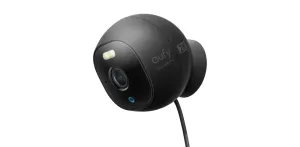Why These Little Cameras Are a Big Deal
Let's be real: deciding where to place outdoor security cameras around your home isn't exactly as fun as decorating your front porch with seasonal goodies. However, it’s a task that brings peace of mind, knowing your safe haven is watched over. I've spent more hours than I'd like to admit tinkering with camera positions, trying to figure out that sweet spot between capturing the mailman’s good side and discouraging any sneaky behavior around my tool shed.
The optimal placement of your outdoor security cameras plays a pivotal role in home security. From personal mishaps like installing a camera under a leaky gutter (yes, that was me) to finding the perfect angle to catch all the action without spying on the neighbors, I've got some insights that might just save you the same headaches.
Understanding the Basics: What You Need to Know
Before you climb up that ladder with drill in hand, let’s chat about why camera placement matters. Ideally, your security cameras should cover as many entry points and as much ground as possible, while also being discreet and protected from the elements. Every angle should be strategic, ensuring there are no blind spots where trouble can hide. (safewise.com)
And if you're new to installing wired systems, this step-by-step guide to wired camera installation is a must-read before you grab the toolbox.
The Front Door: Your First Line of Defense
Believe it or not, the front door is a hotspot for activity. According to a report I stumbled across while drowning in a sea of security stats, around 34% of burglars strut right through the front door. Placing a camera here not only catches anyone coming up to your door but also acts as a deterrent—it’s like telling potential troublemakers, “smile, you’re on camera.” For smart integration ideas, pairing this view with a video doorbell system could be a great way to visually monitor and communicate with visitors from anywhere.
Position the camera above the door frame, angled downwards so that you can see the face of anyone standing there. It should be out of reach to prevent tampering but low enough to capture details. Make sure it’s sheltered from direct sunlight, which can mess with the image quality. And if you can, position it under an eave or overhang to protect it from the weather. Nothing like checking your footage to find a sun-glared blob instead of a person!
The Back Door: Don’t Forget the Back
Just because the front is covered, doesn’t mean the back should be neglected. Install cameras above your back door, especially if it's secluded and hidden from street view, as these traits make it incredibly tempting for those up to no good. Like the front, place it high to avoid tampering but within a range to get clear footage. If you've got a side gate or alley, considering adding another camera here for added security. You might also consider using bullet cameras for these entryways—they’re great for capturing long, narrow views like side paths or alleyways.
Windows Off the Street: Hidden Vulnerabilities
Windows that aren't directly facing a street or easily seen by neighbors are prime spots for break-ins. Position cameras to cover these areas. You don’t need a camera for every window if that feels overkill; focus on those hidden from public view and easy access points.
Garage and Driveways: More Than Just Parking Spaces
Your driveway and garage are more than just places to park your car; they often serve as another entry point to your home and a storage area for valuable belongings. Place cameras so they overlook both the garage door and the length of the driveway. This way, you’ll not only see who comes and goes but also keep an eye on any vehicles or equipment left outside. Need help choosing? Here’s a breakdown of the best wired outdoor security cameras that can stand up to the elements and deliver high-quality coverage where it counts.
Yard Coverage: Protecting Your Outdoor Assets
If you have a backyard or garden, consider placing cameras to monitor these spaces too. Whether it’s keeping tabs on a mischievous pet or making sure no one is helping themselves to your garden gnomes, coverage here is crucial. Aim for high vantage points that give you a good overview. If you want full panoramic coverage, this might be a great place to install a fisheye security camera that provides 180° or even 360° views with a single lens.
Tips for Optimizing Camera Placement
- Lighting is key: Make sure areas are well-lit so your cameras can produce clear footage, even at night. Motion-detecting lights can boost visibility while deterring trespassers.
- Network coverage: Ensure your cameras are within your network range, especially if you’re using wireless models. Nothing’s more frustrating than losing connection just when you need eyes on a situation. Check out this guide for tips on extending your wireless security camera range.
- Legal considerations: Be mindful of privacy laws. Pointing cameras directly into neighbors' windows or private spaces is a no-no. Always aim for a balance between security and respect for privacy.
- Maintenance: Regularly check and maintain your cameras. Clean lenses, check for obstructions, and make sure they haven’t been tampered with.
A Parting Shot: Why It All Matters
The journey to installing outdoor security cameras can feel like a chapter straight out of a home improvement saga—complete with suspense, challenges, and a dash of triumph. Remember, the aim is not just to slap up some cameras and call it a day; it's about creating a secure environment where you and your loved ones can feel safe. And honestly, getting a bit of extra peace of mind in this busy world is something worth aiming for.
Whether you’re a tech whiz or someone who can’t seem to operate a drill without a manual, I hope these tips help you secure your home more effectively. Here’s to fewer ‘oops’ moments and more ‘gotcha’ ones as you keep your space safe!





